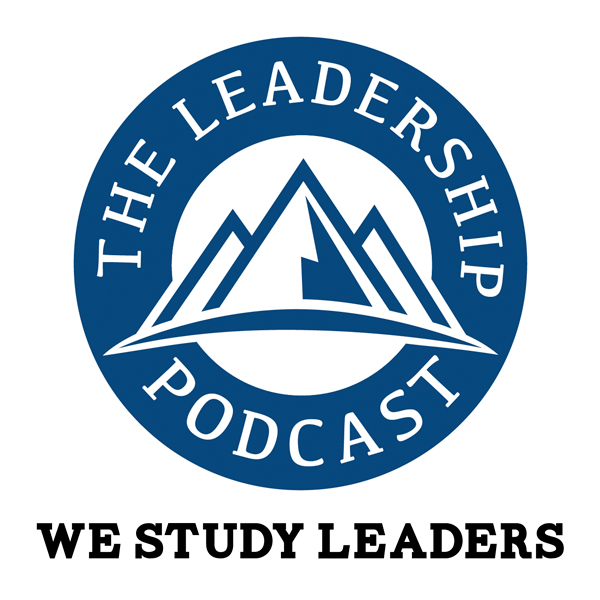1. Please rank the item listed below according to your greatest needs:
Listed below is how the respondents ranked the categories…
1. Develop leaders that drive high performance teams
2. Drive revenue growth
3. Achieve strategic alignment across the organization
4. Create culture that challenges status quo
5. Penetrate new markets
2. Where is your greatest expertise?
Listed below are the responses…
Sales – 27.1%
Executive/Generalist – 25.4%
Other – 18.6%
IT – 10.2%
Marketing – 8.5%
Operations – 5.1%
Finance – 3.4%
HR – 1.7%
3. Why are some leaders ineffective?
1. Lack personality/style/leadership capacity plus training
2. Don’t communicate with their employees – where is the company going and how the employees will be compensated on achieving the goal.
3. Lack integrity take a “ready, fire, aim” approach when under pressure do not exhibit a servant leadership style that attracts and engages team
4. They don’t understand differences between leadership & management. They are very efficient mgrs, but much less effective at leadership. They don’t challenge the teams they lead nor the conventional wisdom of their bosses.
5. Lack vision and insight into cause and effect of action/decisions
6. Lack of passion. Effective leaders have an enthusiasm for their work which is contagious. They inspire others around them. Their excitement spreads throughout the team. Leaders that do not display that true passion don’t inspire others and tend to fail as leaders.
7. Lack of skill (especially strategy, people development/leadership)
8. Many are not visionaries and react to situations they had not anticipated because of this shortsightedness.
9. They might be good technically, but are not good at communicating and managing people
10. Don’t reward those who produce; don’t treat others the way they want to be treated; not trustworthy; don’t surround themselves with outstanding people; only concerned about their next promotion.
11. Lack of support from the top, lack of clear compelling vision, lack of support for their teams
12. Not in touch with their employees intrinsic values No integrity More interested in achieving success for themselves than taking care of their employees Ineffective listeners and/or communicators Do not know how to delegate
13. They can’t understand the customer and their needs and how the company’s employees and product/service can best support/satisfy that need.
1. Unresponsive to organizational needs expressed. 2. Interference with subordinate responsibility. Do not empower/trust staff. 3. Challenges managing up the chain of the organization
14. They are not trusted by their people. They don’t get the job done. If someone comes to them with an issue, the issue should be dealt with (for the better or the worse)…the employee should not have to chase the leader to get answers they need to move on.
1) Won’t make hard tradeoff decisions. 2) Analysis paralysis: risk adverse and want total reassurance of result prior to commitment 3) Encumbered by staff management 4) Lack of role clarity and authority within the organization leads to duplication of effort, inefficiency, and infield fighting.
15. Poor Interpersonal skills; Lack of training; Lack of experience; Self-Focused rather than team focused; Disorganized
16. They don’t make decisions and won’t hold people accountable. They spend too much time managing up and not developing people.
17. They do not galvanize their organization. The people they are leading lack clear, consistent direction.
18. Focused too much on themselves and how they are perceived. Don’t know how to effectively manage others. Can’t figure out what motivates people that work for them–lack of awareness of other. Not good at communicating
19. Unable to make a decision. Unable to motivate people working for them.
20. Failure to focus and prioritize Failure to align incentives of key players Failure to listen (to customers, employees and other key stakeholders)
21. Inflexible – unable or unwilling to adapt as the situation around them changes. It is easy to be a good leader when things are going well.
22. Low emotional intelligence
– Because they simplify too much – Because they cannot listen – Because they can only repeat and not think for themselves – Because they are too shallow
23. Do not listen to the customer needs
24. Their priorities rarely include the right things. They become overwhelmed with producing quarterly results, not long-term value creation, investor’s pressure- to take care of the investors regardless of the business impact and personal goals- What’s in it for me.
25. Too focused on day to day and don’t invest in the long-term viability of their employees. Lose sight of what is important and what is just “noise”.
26. A lack of honesty, integrity, candor, knowledge, and the willingness to take on the same challenges as their team members. Additionally, ineffective leaders are those focused on self-promotion and advancement and are therefore prone to micromanagement, and increasing involvement in the politics of impressing one’s superiors rather than focusing on doing excellent work in light of what is right for their team.
27. Poor communication skills Dysfunctional teams
28. Don’t have the trust of their people
29. Too focused on short term revenue or sales Too micromanaged from superiors Cannot focus on big picture Incentive compensation not aligned with objectives
30. Clear values and willingness to do what is right vs. what is popular.
31. Ego
32. Ability to clearly articulate a compelling vision for meeting market needs, and instituting operating mechanisms to deliver against that vision.
33. Varies by person. Biggest challenge is managing the paradox of “brutally honest about today” and “vision for tomorrow.”
34. They do not provide motivation, realistic goals, or tactics. Fail to follow up on execution and are not honest and open in communicating. Micro-managers.
35. Cannot drive execution
36. You would be hard for me to call somebody who is ineffective a leader. The major reason I believe would be because the followers don’t see where there personal needs can be met by going where the leader is taking them.
37. There are a number of reasons why a person can be an ineffective leader, tops from perspective would be; 1) inability to understand / communicate the mission and its importance, 2) inability to develop or inspire confidence & 3) inability to weather short-term setbacks to build a sustainable organization focused on long-term objectives.
38. They’re not leading. They have the title but not the skill/knowledge.
39. inability to get team to understand and buy in to the overall vision and goal of the project; inability to help team overcome obstacles; inability to create high morale in team; too focused on themselves and personal success rather than success of others/team; lack of emotional intelligence
40. They do not understand the difference between commanding and leading. Even though they have the power to command they must operate differently or they will only get what they want rather than getting the best of an employee.
41. There are a variety of reasons why leaders are ineffective. In my opinion, these are the most common reasons: 1. Not having the respect of one’s peers and/or team. 2. Not having decision-making authority. 3. Not effectively staving off forces that may be working against the leader’s goals.
42. They don’t have a true indication of the actual company culture and are misguided in their actions. Spending time on details rather than the strategy of the business.
43. Limited knowledge of the domain in which they are trying to make the decision…along with the fact that they often don’t know that they don’t know enough about the domain.
44. they operate on CYA
45. Short-term focus for immediate personal rewards.
46. They don’t listen.
47. They do not validate the information being presented to them, thus they can make the wrong decisions. They do not understand project or portfolio management.
48. Great leaders have mastered a bottoms-up style of leadership. Ineffective leaders are top down only. They engender cooperation, not initiative.
49. Ineffective leaders frequently use Soviet-style command and control management.
50. They are not capable of asking the right questions and afraid to really listen to the hard answers. They are not able to build a team heading in the same direction.
4. What do you believe are the most pressing challenges for today’s business leaders?
1. Having a strategic vision and plan. Setting a high moral standard of conduct.
2. Spending more time on their people issues.
3. Having a focused, strategic, balanced, long-term view of business opportunities an active application of emotional intelligence and situational leadership principles throughout the organization
4. Leading through change.
5. To do what you say and say what you mean
6. Engaging team members to think and act as business owners instead of being just an employee.
7. Prioritizing the plethora of projects, initiatives and issues.
8. To be responsive to changing market and competitive situations
9. Retaining top talent; Surrounding themselves with the right people; Creating the right culture; Strategic alignment according to business priorities; understanding the business
10. Change management (keeping folks motivated and focused in changing times).
11. Consistently being ethical when attempting to satisfy the demands of their shareholders Innovation…what is the company doing to ensure that will continue grow and be profitable? Customer Service; not developing long-term relationships with the customer. Retention; what is the company doing to ensure it maintains a skilled workforce?
12. 1. Effective communication with the customer and employee 2. Accepting criticism, growing from it. 3. Seeing the future and understanding how to drive the organization to excel at the changes and challenges that lie ahead.
13. 1. Corporate “America” in general is under such pressure to drive revenue and compete that they are creating company cultures that ignore and discount life balance equations for employees.
14. Aligning their own interests with the interests of the company….that includes shareholders. Short-term gain….long-term problem. Doing the right thing….being honest.
15. 1) unifying subordinates toward mission/goals 2) “Data overload”, as opposed to identification of “right” information
16. Organizational effectiveness, recruiting and hiring, sales and sales management processes, turnover.
17. The need to grow revenue within short time spans with little thought to strategic development. There is no institutional patience for development any more.
18. Globalization, employee lethargy or entitlement, business integrity
19. Looking/seeing beyond the next 6-12 months.
20. Business ethics
21. Keeping their businesses fresh, relevant, creative and continually adding value to customers Dealing with new forms of competition (Internet, global)
22. Ability to rapidly transition or adapt to the changing market. Or to recognize where upcoming changes and to adjust accordingly.
23. Depends on the situation: startup, realignment, etc.
24. Bring ethics back in business. A business leader should also be a moral leader. Currently business is ONLY about making money – with business being a (if not THE) driving force in modern society, it’s responsibility is broadening.
25. Cost pressures
26. To create a business that will stand the test of time is one of our toughest challenges. To create shareholder value that steadily increases. Attract new Visionaries and Talent that want to be a part of creating greatness and retaining them.
27. Reverse the cycle of self-serving managers who will destroy and organization’s ability to compete just to get themselves ahead. Cutting down the politics in an organization to allow for true high achievers to create impact and results.
28. Growing revenue in a difficult economy and business environment; hiring the right people to do the job; expectations to deliver more with fewer resources.
29. Flexibility Strength Maintaining focus (of self and of team)
30. Maintaining motivation and understanding of widely varying generational needs/wants/strengths. Boomers are not risk takers and tend to not want to change, Gen X/Y get bored very easily. Boomers built things themselves, Gen X/Y have been given everything by their parents (Boomers).
31. The most important challenge facing today’s leaders is how to make sure you are developing your future leaders while achieving sales and revenue goals.
32. Being true to their values as they are surrounded by long standing practices that support injustice. For example, how many business leaders speak out about the exponential difference between CEO pay and that of ordinary employees? Or consider how is it just that employees have two weeks’ vacation a year when the demands of caring for a family alone often consume the entire two weeks of vacation. We need to focus on treating employees the way we would want to be treated. When this happens in the business world, productivity will skyrocket and the corruption we see at the highest level of corporate America will plummet.
33. Inability to identify or lack of attention to issue of mentoring others to become effective leaders. Most companies prize self-starters and self-reliant people who require less management time. Most companies also seem to recognize the value of building team skills among their employees. However, those traits are far different from leadership skills. The effectiveness of an organization that has people who can “direct” or “manage” others is probably less than an organization that has “leaders” scattered throughout the company in those positions. An organizational leader who recognizes the value of leadership skills helps position his company for success.
34. The ability to build and sustain and effective leadership team.
35. Coping with very complex markets and very rapid pace of change.
36. Aligning executive compensation with desired company performance. Finding genuine ways to lead their team.
37. Ability to keep the team or company motivated and focused in the right direction. The right direction to me means having the correct vision: What is my market, now and in the future, how to dominate that market and continue to stay on top as that market, technology, and delivery of product and services changes?
38. Achieving team ownership, understanding, or a belief in the strategy. Many leaders are effective at gaining a “following”, but not a culture of workers that can help drive the new ideas needed to execute on the strategy.
39. Balancing task and relationship in their corporate culture. Creating an environment where people want to work versus have to work.
40. The pace of change, the development of leadership capabilities throughout the organization, fed partly by the difficulty to retain important staff members.
41. Challenging national and global economy – differentiation
42. How to continue to keep company/teams motivated, especially when faced with a constantly changing business environment
43. They do not listen to their employees. They do not listen to their customers. If they did both of these they would solve most of their problems.
44. 1. Some leaders put too much emphasis on their own advancement instead of the welfare of their employees and company. 2. Today’s business leaders’ actions and creativity are limited by human resource mandates.
45. Balancing the bottom line and increasing revenues with company culture and keeping employees challenged, happy and motivated.
46. Figuring out how to use information technology to its fullest capabilities while at the same time allowing employees and customers to feel that they still have an important role in making the decisions. In other words, if the IT was always right, we wouldn’t need the people, but currently the IT is wrong often enough that only the really good people can recognize what to do in the face of wrong advice from the IT.
47. Don’t solve problems, create opportunities – Drucker
48. Achieving financial results required by large corporations while building/sustaining a long-term business opportunity. Making employees and customers a central focus; not just shareholders.
49. Understanding the market direction and aligning the organization to meet strategic goals.
50. For them to slow down and take note of what’s going on in the world, in our culture, in their own offices.
51. Having to lead teams with thin experience and shallow teamwork skills.
52. Morale.
53. Getting intelligent, driven people to effectively work together.
5. Please rate the importance of the following issues:
Listed below is how the respondents ranked the categories…
1. Culture
2. Revenue & operational efficiencies
3. Leadership development
4. Teamwork
5. Product development & market penetration
+++++++++++++++++++++++++++++
February 2007
Subject: 90 second survey for Jan Rutherford’s research project
This email request is being sent to 90 people I respect as astute business professionals. This anonymous survey was developed for research I am conducting on leadership, and there are only 5 short questions.
Thank you for participating!
Jan Rutherford







We have often talked about EQ being an important part of being a good leader. One of my favorite bosses, and probably one of my favorite people still, is the guy that led the field operations of my first job out of college. He had been with the company FOREVER, though he had left and come back; and he had once held my position. But even after all those years, he never really forgot what it was like to be in the field in my/our shoes and never raised an eyebrow when you had to come crawling in to tell him that you had crashed yet another company car, or something just as egregious. He took everything in stride. He just asked if you and everyone one involved were OK. It was this attitude that helped build an immense respect for him and trust for him to focus on the big picture. If he knew that you were doing your job and were working hard – that was all he wanted from you. I was never afraid to be honest with him, and he never penalized me for being honest with him – even though he probably should have.
I think in point #3 it is interesting to see why some leaders are ineffective? I think that personality definitively is a large component of that as well as communication, especially when I think of leaders in my life that were either great leaders or not so great leaders. At my current job my supervisor directly over me is somewhat difficult to work with because of the communication piece is lacking. I frequently do not know if I am on her good or bad side due to lack of feedback and effective, constructive communication. This can definitely making her leading ineffective at times in my present job..BR/Also, with point #4 what do you believe are the most pressing challenges for today’s business leaders? I have seen effective leaders in my past really articulate a clear vision and governed their standard of contact of high morals. I have seen this with a friend that has led and organized medical mission’s trips I have been over the past 4 years through an organization called United Servants Abroad. He has a clear vision each time I have traveled with him and organizing our team over 60 individuals in amazing efficiency. He also has the utmost respect from myself and others that have frequently traveled with him that we can entrust him in a way with our lives in a foreign country because his morals are reflected in his daily life.BR/I think ultimately, I admire integrity in a leader. It makes it almost impossible for me to want to be led by someone that I feel lacks integrity. I think thought that integrity has to be earned over time and is also found through observing the individual in different tasks that challenge and stretch them.
Ineffective leaders often follow the Golden Rule, wheras effective leaders focus on the Platinum Rule: Do unto others as they would do unto themselves. The Golden Rule focuses inwardly and the Platinum Rule focuses on the needs,desires, and values of others. Application of the Platinum Rule entails active listening and a general desire to understand people. Once you understand what truly motivates others, you can then create an environment in which to inspire them.BR/BR/*The Platinum Rule was coined by Tony Alessandra*
I find point #4:What do you believe are the most pressing challenges for today’s business leaders? A great way of looking at what overwhelms leaders today. As a business owner, I can identify with these challenges and see where leaders become everything that is in question #3. My power comes from Legit of Authority. But I want my power to come from being admired and respected. This is not as easy as it seems, when you have all and I mean all of #4. It takes time and experiences to see the leader emerge. BR/All in all, good leaders will persevere #4 with Integrity, and providing a clear plan, expectations and walk the talk. In my experience as a “inexperience” leader, employees left because #3. So I have made it an effort to not let #4 overwhelm me, and steer clear of any of #3.
Jan’s comment lists the respondents to this survey as astute business professionals. It is interesting that there appear to be few who responded with a great deal of respect for their leaders. The result is quite the opposite, in fact, as most have some harsh things to say about their leaders. Interesting to me was point 32 in question 4 where it is argued that many “important” leaders today do not seem to necessarily care for the welfare of their suboordinates, specifically mentioning the outrageous rates paid CEOs. Perhaps it is just whining, but I tend to agree that a primary fault of many leaders is that they forget the little people that often work just as hard for far less compensation. I think that a pay difference should exist, but perhaps not to the level it exists now.
I quite agree with your comment in your blog about the source of power being “the Art of the Question”. In my role as a nurse practitioner the whole visit is centered around finding out the correct information, which entails asking the “right” questions. Learning a method (we all have our own) to do that takes time and practice. It’s very similar to the methods I use as a manager when solving employee conflicts, creating motivation, or assisting with solutions to issues within the department. BR/BR/I think when one can open a discussion and truly listen, which allows for employees (or patients!) to feel heard; this starts the effective communication process and leads to the steps you mentioned of agreement on problem existence, solutions, course of action, measurements, and recognition of achievements. Managing patients has much in common with managing staff – coaching, mentoring, and teaching are all skills that are highly necessary to a successful provider-patient relationship. BR/BR/Fredi Beckett